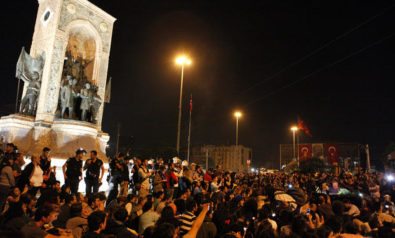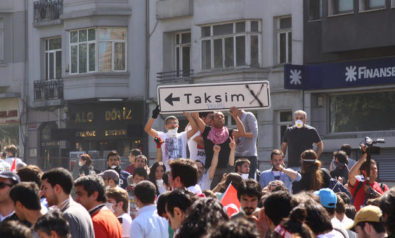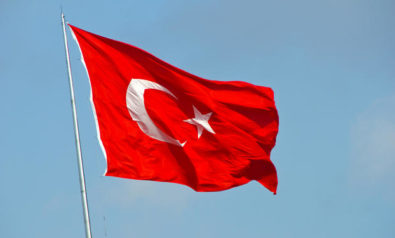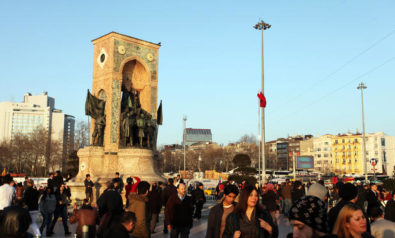
Recent protests in Turkey have exposed deep seated divisions within society. But do they threaten to weaken the stability of Erdogan’s government?
Background
Until recently, Turkey’s citizen-government relations have remained relatively stable, overshadowed by the ever increasing tensions across the Middle East. However, recent protests across the country have set to threaten this stability, exposing an array of suppressed divisions within society.
Tensions erupted on May 28, 2013, from a somewhat modest origin. Small groups of activists gathered in the capital’s renowned Gezi Park on Taksim Square to display their firm opposition and frustration with government-backed plans to demolish one of the few green spaces left in Istanbul. However, met with brute force by the city’s police, what started as a peaceful environmental campaign quickly escalated into a nationwide protest against the government.
Thousands of people have joined protesters in Gezi Park and many more have taken to the streets in over 70 cities across Turkey. The number of injuries is escalating, as the police use tear gas and excessive force to deter protesters. According to the Turkish Human Rights Foundation, five people, including one policeman, have died and over 5,000 people have suffered from injuries.
After coming to power in 2002, the Islamist orientated Justice and Development Party (AKP) has operated with a majority based support and Recep Tayyip Erdogan, prime minister since 2003, has been re-elected three times. With over a decade of relatively undisrupted operation, Turkey has witnessed many reforms implemented at the hands of Erdogan’s government. These include penal reforms and strict measures to curb the abuse and torture of women, a constitutional amendment affording women the freedom to wear Islamic headscarves in universities, and an annual 5% economic growth rate allowing Turkey to clear outstanding IMF loans.
However, despite the wide-spread support for Erdogan and the AKP, tensions have mounted especially amongst many secular members of society who often take a firm stance against the prime minister's Islamist orientated and purported authoritarian style of governance. In 2007, tens of thousands of secularist opponents took to the streets in Ankara, expressing their dislike for Erdogan and his pro-Islamic party. However, later that year, the AKP won parliamentary elections for a second time with almost 50% of votes, allowing Erdogan to retain power. In 2011, the AKP once again came out victoriously in the general elections and Erdogan began his third term in office.
In response to the recent outbreak of social discord and violence, the Turkish prime minister has remained firm in his position claiming: “They can do whatever they want. We've made our decision, and we will do as we have decided." Nevertheless, in attempts to curb the escalating violence, Erdogan has agreed to postpone the redevelopment plans of Gezi Park, pending the results of the ongoing court case.
Why are the Turkish Protests Relevant?
Although Turkey’s recent protests stemmed from a small-scale environmental campaign, they have quickly come to symbolise issues much deeper than this. Protests are now displaying widespread grievances against the ruling government, and with a majority of protesters claiming to be of a secularist/libertarian nature, divisions within society are expanding rapidly. With the introduction of Erdogan’s new religiously motivated laws, like the restriction on the sale of alcohol, society is becoming increasingly polarised and Turkey may be entering dangerous political waters, with governmental supporters and critics quickly taking sides.
Many reports have also told of a national media silence on the protests, which raise further concerns about media freedom in a country which has the highest number of imprisoned journalists in the world. With regards to Turkey’s accession to the EU, analysts are now questioning whether there will be any progress in the near future. The European commissioner for enlargement, Stefan Füle, openly criticised Erdogan for his handling of the protests.
Despite having brought economic growth and reforms to the country, the future stability of Turkey may be becoming more uncertain, as Erdogan is increasingly painted as an authoritarian dictator. It remains to be seen whether this is the start of a "Turkish Spring."
Image: Copyright © Shutterstock. All Rights Reserved
For more than 10 years, Fair Observer has been free, fair and independent. No billionaire owns us, no advertisers control us. We are a reader-supported nonprofit. Unlike many other publications, we keep our content free for readers regardless of where they live or whether they can afford to pay. We have no paywalls and no ads.
In the post-truth era of fake news, echo chambers and filter bubbles, we publish a plurality of perspectives from around the world. Anyone can publish with us, but everyone goes through a rigorous editorial process. So, you get fact-checked, well-reasoned content instead of noise.
We publish 2,500+ voices from 90+ countries. We also conduct education and training programs on subjects ranging from digital media and journalism to writing and critical thinking. This doesn’t come cheap. Servers, editors, trainers and web developers cost money.
Please consider supporting us on a regular basis as a recurring donor or a sustaining member.
Support Fair Observer
We rely on your support for our independence, diversity and quality.
Will you support FO’s journalism?
We rely on your support for our independence, diversity and quality.







